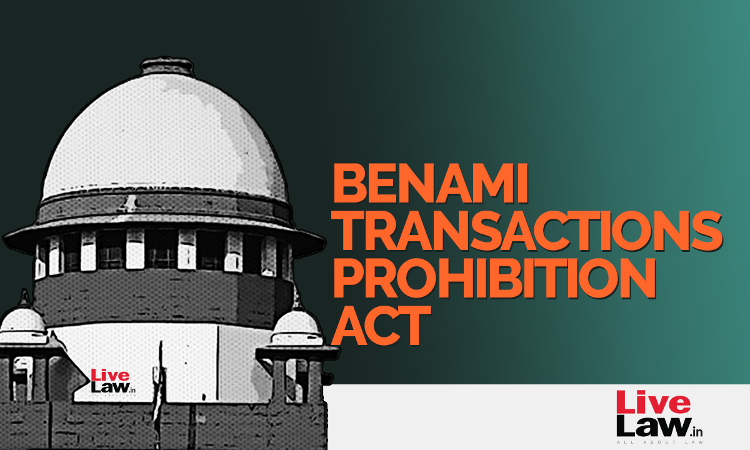"Unduly Harsh" : Why Supreme Court Quashed Blanket Ban On Benami Transactions?
LIVELAW NEWS NETWORK
24 Aug 2022 4:53 PM IST

Next Story
24 Aug 2022 4:53 PM IST
The effect of the Supreme Court's judgment in the case Union of India vs M/s Ganpati Dealcom Pvt Ltd is that there is no longer a blanket prohibition of benami transactions. The Court has declared the provisions of the Prohibition of Benami Property Transactions Act, 1988, which imposed a blanket ban on benami transactions, as unconstitutional for being "unduly harsh", "disproportionate"...
